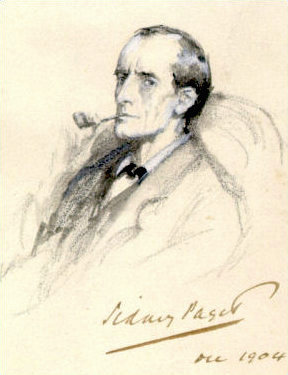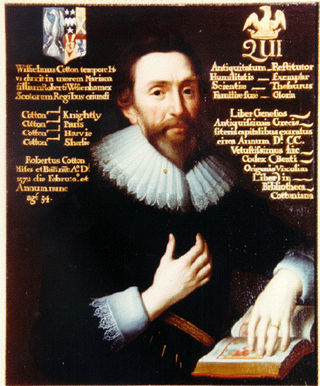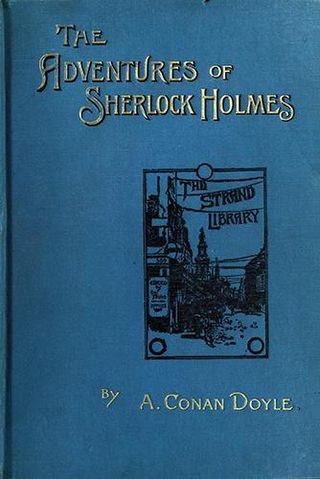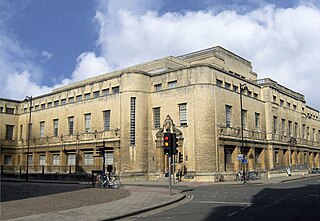
Sherlock Holmes is a fictional detective created by British author Arthur Conan Doyle. Referring to himself as a "consulting detective" in the stories, Holmes is known for his proficiency with observation, deduction, forensic science and logical reasoning that borders on the fantastic, which he employs when investigating cases for a wide variety of clients, including Scotland Yard.

Joseph Ames was an English bibliographer and antiquary. He purportedly wrote an account of printing in England from 1471 to 1600 entitled Typographical Antiquities (1749). It is uncertain whether he was by occupation a ship's chandler, a pattern-maker, a plane iron maker or an ironmonger. Though never educated beyond grammar school, he prospered in trade and amassed valuable collections of rare books and antiquities.

John Aubrey was an English antiquary, natural philosopher and writer. He is perhaps best known as the author of the Brief Lives, his collection of short biographical pieces. He was a pioneer archaeologist, who recorded numerous megalithic and other field monuments in southern England, and who is particularly noted for his systematic examination of the Avebury henge monument. The Aubrey holes at Stonehenge are named after him, although there is considerable doubt as to whether the holes that he observed are those that currently bear the name. He was also a pioneer folklorist, collecting together a miscellany of material on customs, traditions and beliefs under the title "Remaines of Gentilisme and Judaisme". He set out to compile county histories of both Wiltshire and Surrey, although both projects remained unfinished. His "Interpretation of Villare Anglicanum" was the first attempt to compile a full-length study of English place-names. He had wider interests in applied mathematics and astronomy, and was friendly with many of the greatest scientists of the day.

Richard Rawlinson FRS was an English clergyman and antiquarian collector of books and manuscripts, which he bequeathed to the Bodleian Library, Oxford.

Sir Robert Bruce Cotton, 1st Baronet of Conington Hall in the parish of Conington in Huntingdonshire, England, was a Member of Parliament and an antiquarian who founded the Cotton library.

The Society of Antiquaries of London (SAL) is a learned society of historians and archaeologists in the United Kingdom. It was founded in 1701, received its royal charter in 1751 and is a registered charity. It is based at Burlington House in Piccadilly, a building owned by the UK government.

The Adventures of Sherlock Holmes is a collection of twelve short stories by British writer Arthur Conan Doyle, first published on 14 October 1892. It contains the earliest short stories featuring the consulting detective Sherlock Holmes, which had been published in twelve monthly issues of The Strand Magazine from July 1891 to June 1892. The stories are collected in the same sequence, which is not supported by any fictional chronology. The only characters common to all twelve are Holmes and Dr. Watson and all are related in first-person narrative from Watson's point of view.
Richard Gordon Lancelyn Green was a British scholar of Arthur Conan Doyle and Sherlock Holmes, and was generally considered the world's foremost scholar of these topics.

Sir Henry Ellis was an English librarian and antiquarian, for a long period principal librarian at the British Museum.

Humfrey Wanley was an English librarian, palaeographer and scholar of Old English, employed by manuscript collectors such as Robert and Edward Harley. He was the first keeper of the Harleian Library, now the Harleian Collection.

Sir Arthur Ignatius Conan Doyle was a British writer and physician. He created the character Sherlock Holmes in 1887 for A Study in Scarlet, the first of four novels and fifty-six short stories about Holmes and Dr. Watson. The Sherlock Holmes stories are milestones in the field of crime fiction.

The Friends of the British Library is a registered charitable organisation in the UK with close links to the British Library. It provides funding in the form of grants to the British Library in order to allow the Library to acquire new items and collections, procure new equipment and facilities, and produce exhibitions.
Roger Gale was an English scholar and antiquary as well as a Whig politician who sat in the English and British House of Commons from 1705 to 1713. His father was an ecclesiastic and professor at Cambridge, which the younger Gale also attended. After his graduation, Gale briefly served as a diplomat in France, as well as holding a position as a reader at Oxford University's Bodleian Library. On his father's death in 1702, Gale retired to his family estate, but was elected to Parliament in 1705, where he served until 1713. He then continued in public service until 1735, when he once more retired to his estates.
Janet Moira Backhouse was an English manuscripts curator at the British Museum, and a leading authority in the field of illuminated manuscripts.

Richard Julian Roberts FSA was a British librarian, bibliographer, and scholar.
John Bridges (1666–1724) was an English lawyer, antiquarian and topographer.
Edmund Turnor, FRS, FSA, JP, was an English antiquarian, author, landowner and a British politician.
Jonathan James Graham Alexander, FBA, known in print as J. J. G. Alexander, is a medievalist and expert on manuscripts, "one of the most profound and wide-ranging of all historians of illuminated manuscripts".
Richard Dorment, is a British art historian and exhibition organiser. He worked as chief art critic for The Daily Telegraph from 1986 until 2015.
Claire Breay, MBE is an English manuscript curator and medieval historian. She is the Head of Ancient, Medieval and Early Modern Manuscripts at the British Library, where she specializes in Western medieval manuscripts in the Department of Collections.












